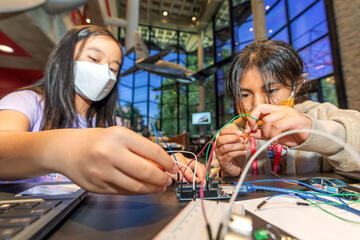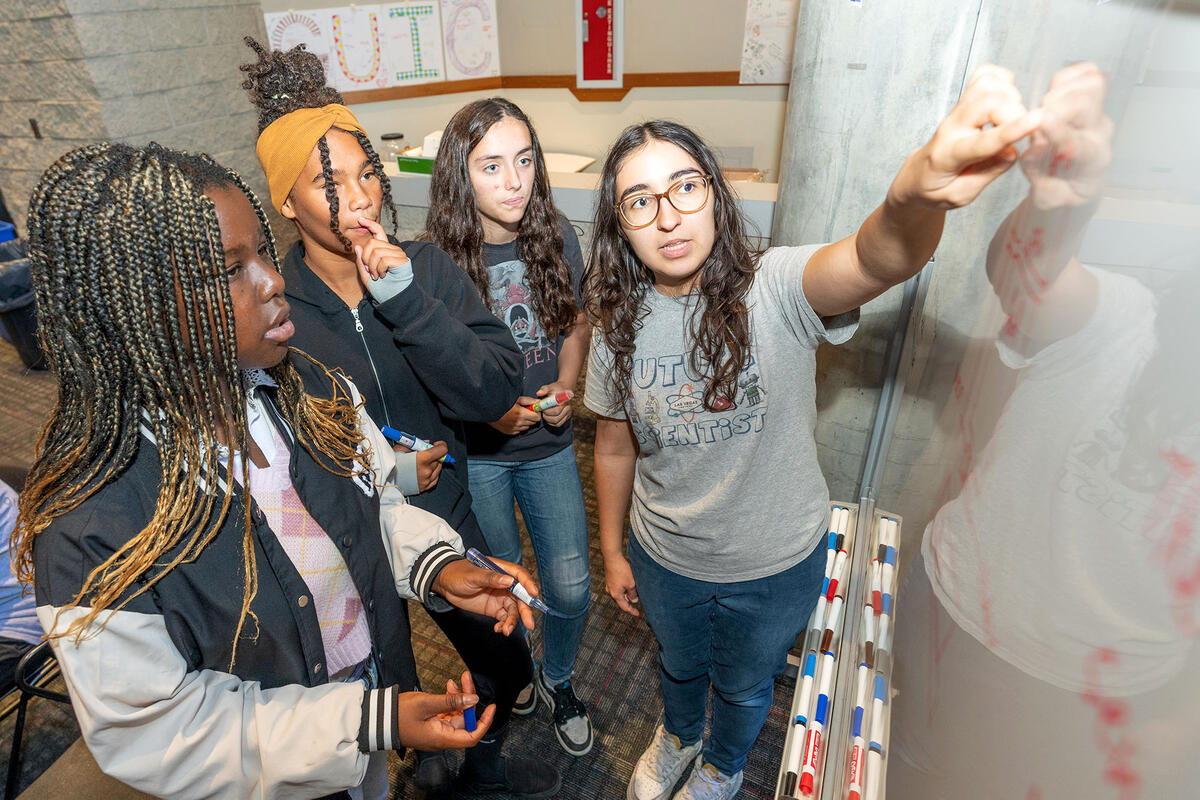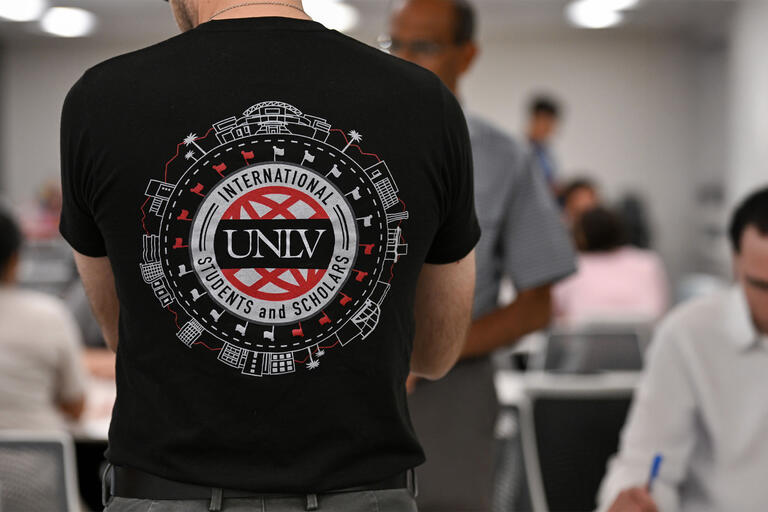Green means go, or in the case of the smart parking lot system built by a team of budding female engineers, the bright green light meant that their coding worked.
As Grace Kweon brought her hand within 5 inches of the sensor, the tiny light — dull only moments before — lit up, and so did her eyes.
“They learn pretty quickly,” said Mei Yang, professor of electrical and computer engineering at UNLV. “They’re showing us — and themselves — that female students can do an excellent job in the engineering field, given the opportunity.”
Kweon and her teammates took a deep dive into Arduino programming and robotics design this summer as part of the five-week, Engaging Girls in Ubiquitous Intelligence and Computing (GUIC) camp at the UNLV Howard R. Hughes College of Engineering. In its third year, the program recruited 41 middle and high school female students to learn ubiquitous intelligence and computing concepts in an effort to broaden their exposure to STEM pathways and careers.
“The major goal of this program is to enhance their self-advocacy and build up their confidence in the computing and engineering fields,” said Yang, who leads the interdisciplinary program alongside engineering professor Venki Muthukumar, and education professor Shaoan Zhang. “It’s amazing how quickly they learn and are able to apply this new knowledge to real-world applications.”
After spending the first three weeks learning how to code and build circuits, camp participants teamed up to take on a variety of smart technology and robotics projects that are mentored in collaboration with UNLV student mentors and Clark County School District (CCSD) teachers. From a smart pet feeder that dispenses food at the same time every day, to a mobile Mars fortress that could transport families across the Red Planet, projects ranged from practical applications to future possibilities.
“We’ve shown that with enough effort — on both the student side and the teacher side — that we can go ahead and accomplish great things,” said Adam Billman, CCSD mentor and math teacher at Basic Academy of International Studies in Henderson. “They’ve shown that they can take an idea and make it their own.”

Diversifying the E in STEM
On day one of project building, Kweon and her teammates — sisters Kate and Josephine Castillo — were already making great strides. Verifying that their sensor worked, they were able to cross one major project hurdle off their list.
And as they did so, they talked about why they came to the camp — their conversation revealing the program’s ultimate purpose.
“I’ve seen many TV shows where the boys are mostly in STEM and they do more engineering work, and females are doing other jobs,” said Josephine Castillo, a rising 7th grader at Roy Martin Middle School. “I joined this program because I believe a female can do anything a male can do.”
Representation, Zhang said, is important in helping female students develop a STEM identity. That’s why, in addition to numerous hands-on activities, the camp featured women engineering professors as guest speakers. Participants also took tours of research labs on campus.
“They are role models for our girls,” he said. “They see them and say, ‘Oh, I can do it, as well.”
Across the nation, women remain underrepresented in engineering and computer science fields. According to the Pew Research Center, women account for 25% of those working in computer occupations and only 15% in engineering and architecture.
Even the student and teacher mentors at the camp, Zhang pointed out, skew male. But he and co-camp leads hope their program — funded with $400,000 from the National Science Foundation over the past three years — will make a meaningful impact in years to come.
“I told the girls that in 20 years I want this to be different,” he said. “I want you to be the mentors.”
If the Castillo sisters have anything to say about it, Zhang’s wish might come true.
Kate Castillo, a rising senior at the Northwest Career and Technical Academy, has had first-hand experience with being one of only a few female students in her robotics classes. But she continues to persevere and pass on her love of STEM exploration to her sister and others.
Her advice?
“Don’t let gender get in the way of a hobby or a dream,” she said. “Pursue it."
All engineering-focused student programs, including other opportunities across UNLV’s campus, can be accessed through UNLV’s new Young Rebels Program.



